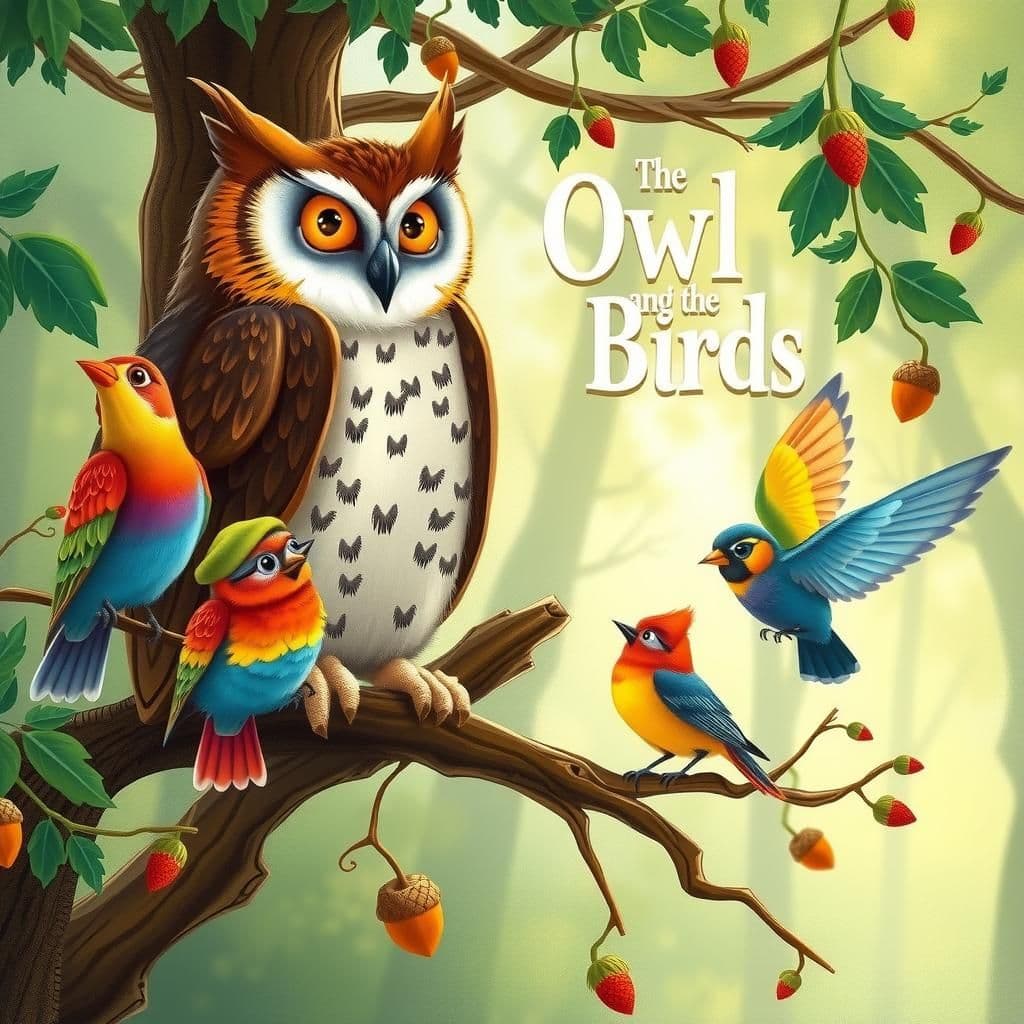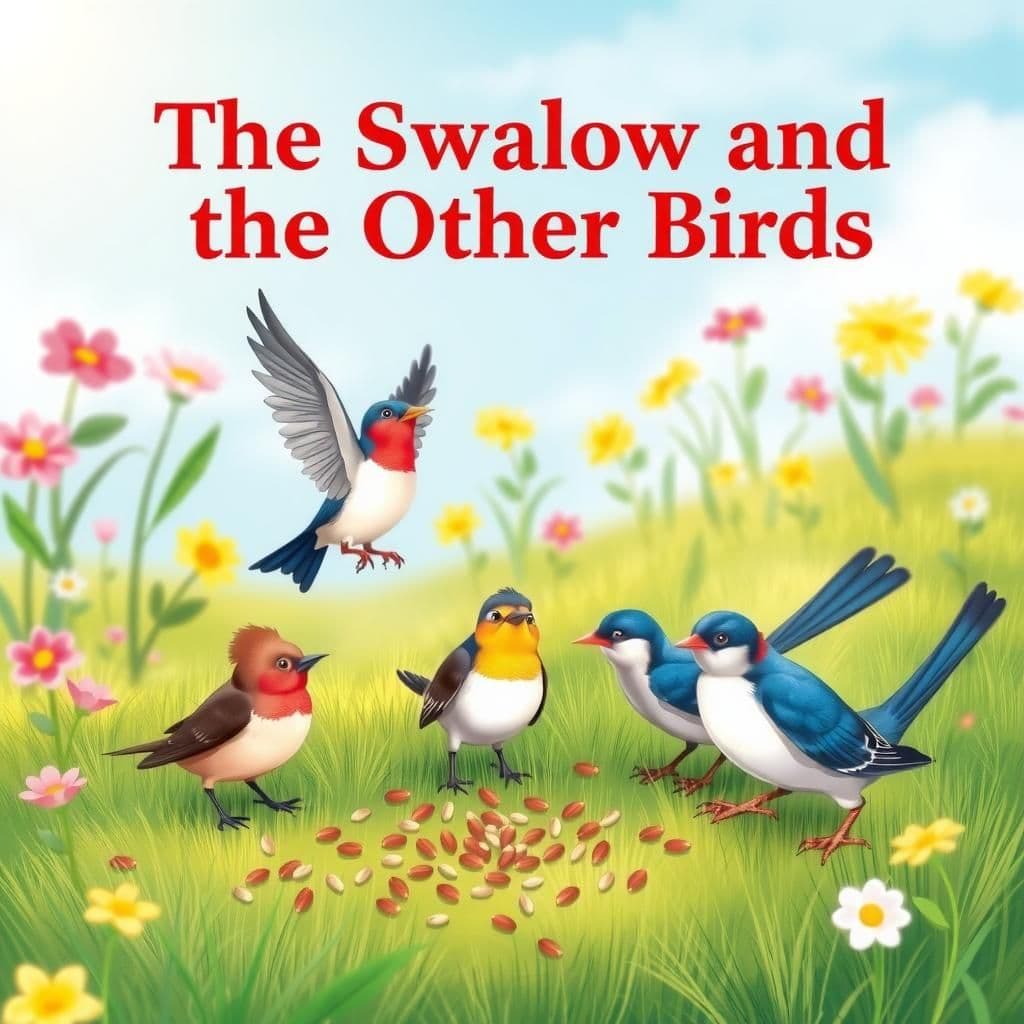The Owl and the Birds
In "The Owl and the Birds," a wise owl shares her knowledge through moral-based storytelling, warning the birds to uproot sprouting acorns and flax seeds that would bring danger from mistletoe and hunters. Dismissing her counsel as madness, the birds later regret their disbelief when her predictions come true, realizing the owl's wisdom echoes the lessons found in classic moral stories. Now, they revere her in silence, reflecting on their past folly and the importance of heeding wise advice.

Reveal Moral
"The story illustrates that wisdom often goes unrecognized until it is too late, emphasizing the importance of heeding wise counsel before facing inevitable consequences."
You May Also Like

The Oxen and the Butchers
In "The Oxen and the Butchers," a group of Oxen, seeking to overthrow the Butchers who kill them, are cautioned by an elder Ox about the potential consequences of their actions. He argues that while the Butchers do cause them suffering, their skilled butchery ensures a more humane death than the brutality of unskilled operators, highlighting a moral lesson about the dangers of hastily exchanging one evil for another. This captivating moral story serves as a reminder that not all changes lead to better outcomes, making it a meaningful addition to any collection of short stories with moral lessons for adults.

The Wolf and the Feeding Goat
In "The Wolf and the Feeding Goat," a cunning Wolf attempts to lure a Goat down from her safe perch by boasting about the abundant, albeit misleading, food below. The clever Goat counters his claims by referencing the failed circus-poster crop, highlighting the Wolf's deceptive nature. This captivating moral story serves as an educational reminder of the importance of discernment in the face of temptation and false promises.

The Swallow and the Other Birds
In "The Swallow and the Other Birds," a Swallow warns fellow birds about the hemp seeds being sown by a Countryman, emphasizing the risk of future traps. Ignoring this advice leads the birds to become ensnared in nets made from the grown hemp, a poignant lesson in the importance of heeding warnings in real-life stories with moral implications. This easy small story with moral teaches that addressing potential dangers early can prevent ruin.
Quick Facts
- Age Group
- adultkidschildrenstory for class 2story for class 3story for class 4story for class 5story for class 6story for class 7story for class 8
- Theme
- wisdomheeding adviceregret
- Characters
- OwlBirdsArcher
Subscribe to Daily Stories
Get a new moral story in your inbox every day.